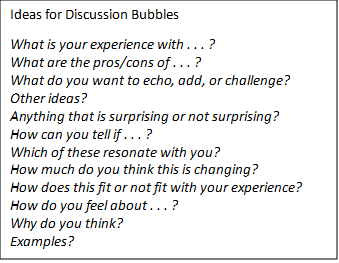With a wide range of applications, including streamlining administrative tasks and tailoring learning experiences, AI is being used in innovative ways to enhance higher education.
Course design and content preparation
AI tools are changing the way academic staff approach course design and content preparation. By leveraging AI, lecturers can quickly generate comprehensive plans, create engaging sessions, and develop quizzes and assignments.
For instance, tools like Blackboard Ultra can create detailed course plans and provide suggestions for content organisation and course layout. They can produce course materials in a fraction of the time it would traditionally take and suggest interactive elements that could increase student engagement.
AI tools excel at aligning resources with learning outcomes and institutional policies. This not only saves time but also allows lecturers to focus more on delivering high-quality instruction and engaging with students.
Enhancing learning experience
AI and virtual reality (VR) scenarios and gamified environments are offering students unique, engaging learning experiences that go beyond traditional lectures. Tools like Bodyswaps use VR to simulate realistic scenarios for practicing soft and technical skills safely. These immersive and gamified environments enhance learning by engaging students in risk-free real-world challenges and provide instant feedback, helping them learn and adjust more effectively.
Self-tailored learning
AI also plays a role in supporting students to tailor learning materials to meet their individual and diverse needs. Tools like Jamworks can enhance student interaction with lecture content by converting recordings into organised notes and interactive study materials, such as flashcards.
Similarly, Notebook LLM offers flexibility in how students engage with their courses by enabling them to generate content in their preferred form such as briefing documents, podcasts, or taking a more conversational approach. These tools empower students to take control of their learning processes, making education more aligned with their individual learning habits and preferences.
Feedback and assessment
Feedback and assessment is the most frequently referenced area when discussing how reductions in workload could be achieved with AI. Marking tools like Graide, Keath.ai, and Learnwise are changing this process by accelerating the marking phase. These tools leverage AI to deliver consistent and tailored feedback, providing students with clear, constructive insights to enhance their academic work. However, the adoption of AI in marking raises valid ethical concerns about its acceptability such as the lack of human judgement and whether AI can mark consistently and fairly.
Supporting accessibility
AI can play a crucial role in enhancing accessibility within educational environments, ensuring that learning materials are inclusive and accessible to all students. By integrating AI-driven tools such as automated captioning, and text-to-speech applications, universities can significantly improve the accessibility of digital resources.
AI’s capability to tailor learning materials is particularly beneficial for students with diverse educational needs. It can reformat text, translate languages, and simplify complex information to make it more digestible. This ensures that all students, regardless of their learning abilities or language proficiency, have equal opportunities to access and understand educational content.
Despite the benefits, the use of AI tools like Grammarly raises concerns about academic integrity. These tools have the potential to enhance or even alter students’ original work, which may lead to questions about the authenticity of their submissions. This issue highlights the need for clear guidelines and ethical considerations in the use of AI to support academic work without compromising integrity.
Another significant issue is equity of access to these tools. Many of the most effective AI-driven accessibility tools are premium services, which may not be affordable for all students, potentially widening the digital divide.
Student support – chatbots
AI chatbots are increasingly recognised as valuable tools in the tertiary education sector, streamlining student support and significantly reducing staff workload. These increasingly sophisticated systems are adept at managing a wide array of student queries, from routine administrative questions to more detailed academic support, thereby allowing human resources to focus on tasks requiring more nuanced and personal interactions. They can be customised to meet the specific needs of a university, ensuring that they provide accurate and relevant information to students.
Chatbots such as LearnWise are designed to enhance student interactions by providing more tailored and contextually aware responses. For instance, on a university’s website, if a student expresses interest in gaming, they can suggest relevant courses, highlight the available facilities and include extra curriculum activities available, integrating seamlessly with the student’s interests and academic goals. This level of tailoring enhances the interaction quality and improves the student experience.
Administrative efficiency
AI is positively impacting the way administrative tasks are handled within educational institutions, changing the way everyday processes are managed. By automating routine and time-consuming tasks, AI technologies can alleviate the administrative load on staff, allowing them to dedicate more time to strategic and student-focused activities.
AI tools such as Coplot and Gemini can help staff draft, organise, and prioritise emails. These tools can suggest responses based on the content received, check the tone of emails and manage scheduling by integrating with calendar apps, and remind lecturers of pending tasks or follow-ups, enhancing efficiency within the institution.
Staff frequently deal with extensive documentation, from student reports to research papers and institutional policies. AI tools can assist in checking, proofreading and summarising papers and reports, and can help with data analysis, generating insights, graphs and graphics to help make data more easily digestible.
How is AI being used in your institution?
At Jisc we are collating practical case studies to create a comprehensive overview of how AI is being used across tertiary education. This includes a wide range of examples supporting the effective integration of AI into teaching and administration which will be used to highlight best practice, support those just getting started with the use of AI, overcome challenges being faced across the sector and to highlight the opportunities available to all.
We want to hear how AI is being used at your organisation, from enhancing everyday tasks to complex and creative use cases. You can explore these resources and find out how to contribute by visiting the Jisc AI Resource Hub.
For more information around the use of digital and AI in tertiary education, sign up to receive on-demand access to key sessions from Jisc’s flagship teaching and learning event – Digifest running 11–12 March.









